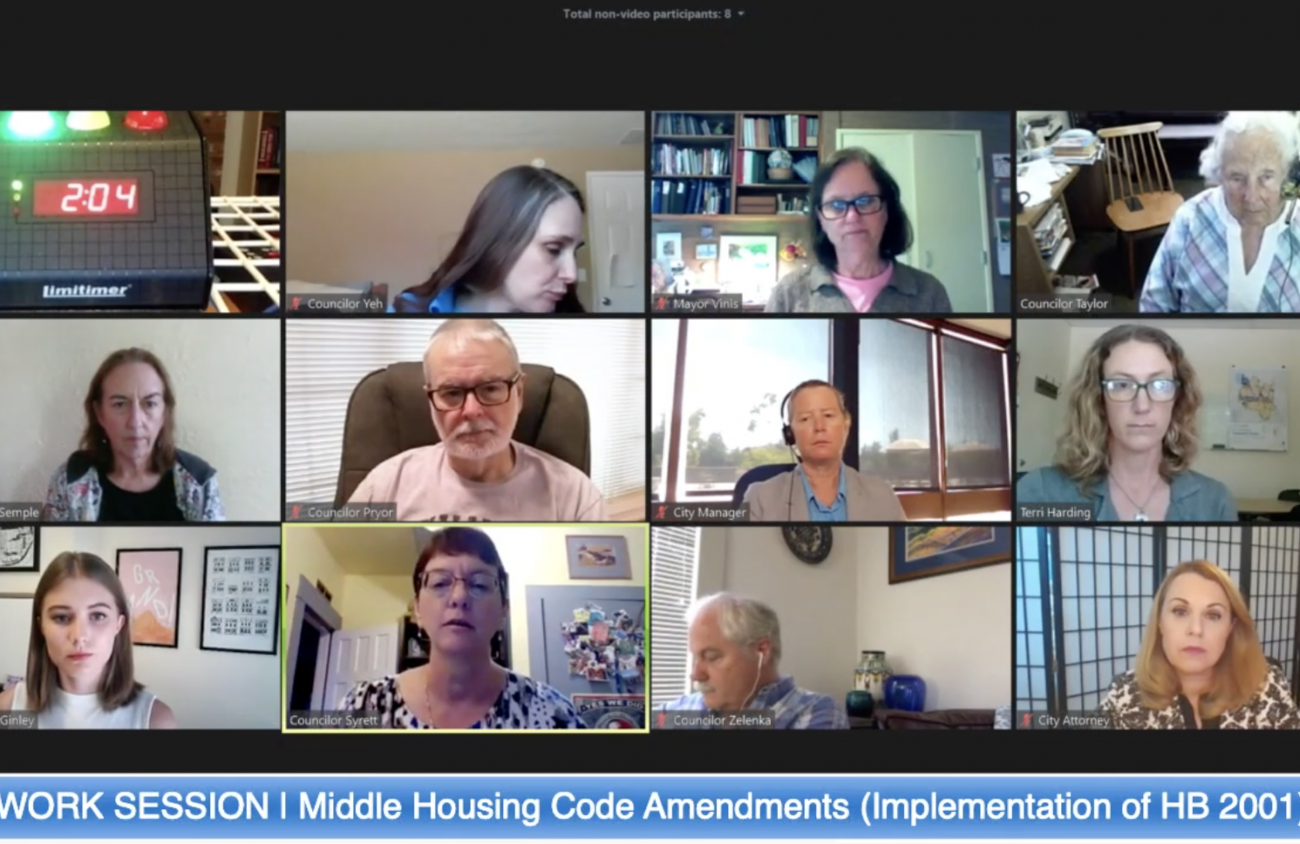At the end of the nearly four-hour Eugene City Council meeting on July 27, councilors took an anticipated vote on whether or not to put the STAR voting system measure on the November ballot. In the hours before the vote, several speakers at the public forum testified in favor of the new voting system.
The council had a stalemate on whether to send the measure to the ballot, with Mayor Lucy Vinis, who can only vote when the council is at an impasse, breaking the tie by voting against it. Councilors who voted against the measure cited concerns about bypassing Lane County Elections’ earlier decision to deny the measure based on legitimacy problems they saw in STAR’s signature campaign.
They also said that they didn’t want to put a measure on the ballot that they could not wholeheartedly support, with some questioning whether implementing a costly new voting system is the right thing to focus on right now.
The STAR voting system is different from the current “choose one” voting system because it allows voters to rank their choices from zero to five. This, STAR advocates say, would allow you to vote your conscience instead of being forced to pick between the “lesser of two evils” or waste your vote.
Councilor Mike Clark, who usually takes a conservative stance, said that he didn’t support STAR voting as a policy.
“I think it’s a horrible idea that will cost us money we don’t have,” he said.
The city of Eugene staffers said that they estimate one-time implementation costs of the STAR voting system to be at least $200,000, with ongoing costs estimated up to be $230,000 per election.
But Clark was adamant about voting in favor of getting the measure on the November ballot. He said that the proponents behind STAR had shown, with their signature campaign that included more than 10,000 supporters, that the measure deserves to be voted on by the people of Eugene.
Councilor Betty Taylor, who is on the opposite end of the political spectrum from Clark, said that she does support STAR voting, a policy that has been backed by Oregon progressives. She also said that she agrees with Clark that, even if the councilors do not support STAR itself, they should still allow the voters to decide in November.
“I thought this would be an easy decision. All we’re talking about is giving people a chance to vote,” Taylor said. “Democracy demands that we let the people vote on this.”
During the public forum that took place earlier in the meeting, speakers urged the council to vote in favor of allowing STAR on the November ballot.
Clay Shentrup, a co-inventor of STAR voting, said that the councilors didn’t need to think that STAR was the best voting method.
“This is not really a question about whether STAR voting is a better voting method. It is simply a question of whether Eugene residents deserve the chance to vote on the matter,” Shentrup said.
Tony Martins, who serves as the chief petitioner of STAR Voting for Eugene and Lane County, also spoke in favor of the measure.
“As an educator who teaches math, I support STAR voting because it is simply the correct answer,” Martins said. “I do not ask you to put this on the ballot only because it is the best thing for our democracy, I ask you to do it because it is the right thing to do. Lane County Elections chose to disenfranchise the citizens of Eugene.”
A few councilors expressed concern about overriding Lane County Elections, which referred the decision about the ballot status to the Eugene City Council after finding some signatures on STAR’s submitted report that didn’t match with the signatures that Lane County had on file.
“The passion of STAR proponents is admirable,” Councilor Chris Pryor said. “But I don’t want to, on the fly, say I disagree with the official work of Lane County Elections.”
Pryor said that he worries about the precedent that bypassing Lane County Elections would set. He said that he doesn’t want to make it seem that the city of Eugene will sweep aside any county decision that people don’t think is fair.
Clark said that voting to put this measure on the ballot would not inherently be suggesting that Lane County made the wrong decision.
“I think the county government did the same job they always do, and did it well,” Clark said. “But I think their process is lacking. The method by which they use to verify signatures is subjective. It’s not a failure, it’s just a process that could be better.”
The councilors had a discussion about whether sending a measure to the ballot would be showing their support for the policy. This was especially notable given Clark’s divergent stances about sending the policy to the ballot and the policy itself.
Based on city code, if the council votes to send a measure to the ballot, at least one person has to write an argument in favor of the policy. Clark, who knew that councilors Taylor, Greg Evans and Emily Semple supported STAR voting and would be able to write this argument, maintained his position to let the voters decide on STAR in November.
Councilors Pryor, Jennifer Yeh, Claire Syrett and Alan Zelenka voted not to send the measure to the November ballot. Breaking the tie, Mayor Vinis also voted no, and the Eugene City Council did not move forward to allow voters to decide on STAR voting in November.
